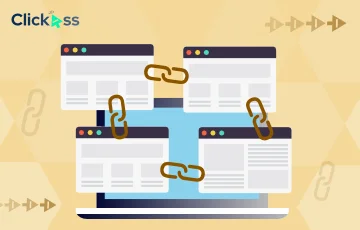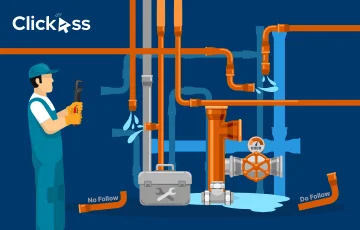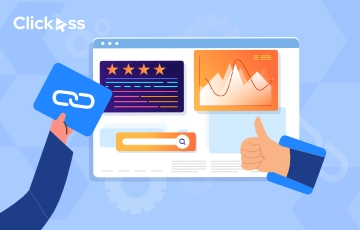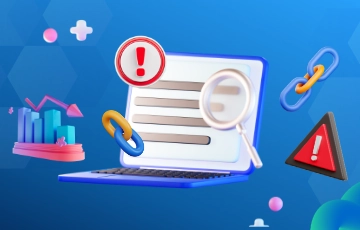
Link equity and SEO equity are interrelated concepts. Despite this, many people don’t understand the role of link juice in SEO and how it can improve your website’s search rankings.
This guide will throw light on how to improve your link value and boost your site’s SEO juice. Let’s get going.
What Is Link Equity?
Also known as link juice, link equity is the value or level of authority some specific pages pass on to the next.
The value of the links being transferred is dependent on several factors:
- Linking page’s authority
- HTTP status
- Topical relevance
But Why Is Link Equity Important?
Link equity is important as it directly correlates with Page Rank, a confirmed factor for search engine ranking.
Sites like Google View passed on link equity to analyze the website’s usefulness.
If you want to improve your link-building strategy using high quality links, you need to have a solid understanding of link equity.
Furthermore, link equity comes in handy if you wish to analyze the strength of your backlinks.
Link Juice vs Page Rank: A Comparison
The quality of link equity being passed is directly proportional to the Page Rank. So, if high-authority pages pass on link equity to your site, the higher your site’s ranking will be within the search engine results.
Here’s a quick comparison of the two for your reference:
- Link Equity refers to the link value that is transferred from one page to the next.
- Page Rank refers to the importance of a page depending on the link juice that the page receives from other pages. To determine the PageRank, Google looks at the quality and number of links and ascertains its importance.
9 Factors That Determine Link Equity
Remember that both internal and external links can pass on link equity and add to your site’s SEO juice.
Here are nine factors to be mindful of when understanding whether a link will pass equity or not:
1. The PageRank of the Referring Page
Link equity is directly tied to PageRank – Google’s proprietary algorithm. This feature leverages your website’s backlink profile to attribute a relevant ranking during search engine results.
The underlying assumption is that the most relevant websites will be the ones with the highest number of links from other websites.
2. The Relevance of the Referring Page
For your SEO equity to work, the link should be coming from a relevant page.
If you are linking from a page that talks about fashion to a page about culinary cooking, Google will disregard the link as it is neither relevant nor contextual. So, ask yourself: Is the link relevant?
3. The Authoritativeness of the Referring Website
Authoritative websites like news organizations, for instance, hold more credibility and weightage than other sites. This is because these websites have garnered trust from readers over the years for their valuable content.
So, if your link is coming from these sites, your domain rating is bound to increase, and so will your link juice.
4. Page Indexability
The higher the chances of a page getting indexed by search engines, the more the page will pass the link juice to other pages.
So, if your website page is not indexable, it will not be able to pass on link equity.
Some examples of pages that cannot be indexed include non-canonical pages or pages that cannot be crawled due to the use of robots.txt file.
In the case of the latter, Google will choose to ignore the page, and no link equity will be passed.
5. Type of Link on Page
For better link flow and higher link equity, include a Do-Follow Link for passing link equity.
Here’s how it works: When a search engine bot encounters a Do-Follow link on a webpage, it will navigate to the linked page and consider it as part of its ranking algorithm. Consequently, Do-Follow links can positively impact the search engine ranking and visibility of the linked page.
Some of the common characteristics of Do-Follow links include:
- SEO Boost: They enhance SEO by signaling content value to search engines.
- User Engagement: DoFollow links improve user experience by guiding users to related content.
- Editorial Trust: They are often editorial and considered more trustworthy by search engines.
6. The Number of Outgoing Links on the Referring Page
The number of outgoing links also plays an important role in assessing link equity. If there are too many outgoing links on the page, Google may consider it to be spammy.
Plus, your readers might lose their focus and redirect their attention to the unimportant links!
7. The Relevance of the Anchor Text
Anchor text is an integral part of quality link building. So make sure that the anchor text on the page you are linking uses the relevant keyword, tying it directly to your brand/product/niche.
Using contextual keywords signals to Google as well as the end-reader about what to expect on clicking the link.
8. HTTP Status of the Linked Page
Another instrumental factor in determining link equity is the HTTP status of the linked page.
Pages with permanent or temporary redirects will retain their link equity and will pass through PageRank as per Google.
However, it is still recommended to keep checking the HTTP status of the linked page and update it as needed.
9. Link Location on the Page
Here, you’re basically determining the link flow or location of the link on the page:
- If the link is way down below, near the footer area, or in the sidebar, the link value will be low.
- If the link is strategically placed within the body of the content, it will carry a higher value.
Google typically analyzes your website’s architecture to understand:
- What type of content is preferred by the customers?
- What is the reader’s intent when they view the page?
- How can the links help the reader achieve their goals and requirements?
How to Leverage Link Juice to Improve SEO For The Website?
Improving link juice in SEO can be achieved in two strategic ways:
1. By Obtaining Links From External Domains
The best way to get link juice is to obtain links from credible external sites.
For this link equity strategy to work, focus on building value-driven, resourceful, and relevant content.
Additionally, you can get external links by engaging in guest posting or using custom link-building initiatives (think Resource Link Building, for instance).
When it comes to securing high-quality external links for your SaaS website, consider leveraging Clickass SaaS Link Building Solutions.
My expertise in niche-specific link acquisition can significantly enhance your website’s link juice, driving SEO improvements that translate into greater visibility and organic traffic.
2. By Employing Internal Links
If your external link-building campaign is working, your internal links will also get a boost. When a high-authority website passes link equity to your page, your internal links, too, will benefit from an uptick in traffic.
Pro tip: Always link internally to high-value pages that you think demand greater footfall.
How to Acquire More Link Juice for Your Pages?
Link building and SEO go hand in hand. And external links are one of the most important factors for Google to rank your website.
Every time someone backlinks to your website, Google views your website as having valuable, credible, and meaningful content.
However, you need to note that link juice passed from external websites is a different ballgame altogether. For instance, Google’s PageRank algorithm considers the link juice from an external site to be worthy.
Here are four strategies you can leverage to improve your link value and build on SEO juice:
1. Implement hreflang for International Websites
If your website has a global audience, you may need to translate the content to make it locally palatable. This is where the hreflang tag can be used to improve the page’s ranking within local search engines.
Here’s how it works.
The tag sends a signal to the search engine and helps it to:
- Point towards differing versions of each page
- Return to the most appropriate page based on the user’s location and language
- Enable seamless sharing of link juice between pages (including the localized variations)
Pro tip: You can add hreflang tags to your XML Sitemap. This will send one single file to the search engine. This file will comprise all the pages (and their respective translated or localized versions as well).
2. Create More Linkbait Content
Ever heard of the skyscraper technique? This technique is all about building valuable content to more link juice for your SEO.
Here’s how you can implement this technique:
- Expand on existing content by creating shareable listicles or adding newer examples.
- Update the existing content with newer data or information depending on the niche your business is in.
- Beautify the content with visual elements such as infographics, charts, and so on.
Once the content is ready, you can share it on relevant social media platforms to encourage more link-sharing.
3. Engage in Link Reclamation
Recovering link juice (or ‘reclaiming’ your link) is extremely useful in optimizing old links that point toward your pages. You can find these links using the Google Search Console’s Index Coverage report. This report will help you to find URLs with a 404 status:
Then, you can use the Ahrefs tool to identify the links to the page. Finally, you need to send the website owner the updated link.
Pro top: Under no circumstances should you redirect the link to your homepage or any other irrelevant page—or you risk lowering your website’s conversion rates.
4. Skip “Harmful Backlinks”
Harmful (read: spammy) links can negatively impact your page rankings and performance. To check which links are working and which ones aren’t, use a tool like Check My Links by Google, which can crawl through your website and identify the broken links:
Valuable Link Equity Starts with Quality Content + Consistent Outreach + Strategic Planning
Link equity helps understand how much value people attribute to your website content. Naturally, it has a significant impact on your search engine ranking, too.
The link flow and quality of your link equity are clear indicators of your website’s authority from Google’s viewpoint. Whether you are looking for a robust backlinking strategy, want to produce quality content that others want to link to, or wish to use link equity to improve your site’s search engine rankings, having an expert by your side can speed up the process without compromising on the quality.
Connect with me to kickstart your journey of building link juice in SEO and see your website rankings (as well as profits) soar.
Frequently Asked Questions (FAQs)
Can you measure link equity?
Contrary to popular belief, you cannot measure link equity accurately. That said, you can estimate it based on critical factors such as domain authority, page authority, PageRank, page relevance, page indexability, anchor text relevance, number of outgoing links, and link-building efforts.
What to do if I don’t want to pass link juice to anyone else?
One of the biggest misconceptions of passing link juice to another website page is that your page will lose its own link juice.
In other words, the value of your website page will not reduce if you link other pages. As long as you are not sending unnatural or spammy links from your website to others (in which case Google might penalize you), you are good.
If you still don’t want to pass on link juice, just use the nofollow attribute in your links.
Do nofollow links pass link equity?
No. The fact is that Nofollow links do not pass link equity. However, you can still use Nofollow links to improve your website’s authority, enhance brand awareness, and drive residual traffic.
About The Author
Dhruv Mehta
Dhruv Mehta is a SaaS link building expert with a passion for demystifying digital strategies. Join him on a journey through insightful SaaS SEO and Link Building Insights, where he transforms digital novices into confident navigators of the online world.
Table of Contents
ToggleRelated Posts
Unlocking the Power of Reciprocal Links in 2024: Strategies for SEO Success
13 Link Building Challenges & How to Overcome Them
16 Link Building Mistakes to Avoid in 2024
What Are PBN Backlinks? (And Why You Shouldn’t Use Them)
Analyzing Your Backlink Profile for SEO & 2 Perfect Examples
10 Ways to Index Backlinks Faster in 2024
Nofollow vs. Dofollow Backlinks: Understanding Their SEO Implications
Tiered Link Building: Everything You Need to Know
Skeptical About Forum Backlinks? Here’s What You Need to Know
Backlink Management in 2023: 10 Ways to Track and Organize Your Backlinks
What is Link Equity and How Is It Determined?
Link Building 101: Master The Basics and Beyond
The Power of Backlinks: Why They Are Essential for SEO Success
Link Insertion: How to Do it with $0 Investment?
Everything You Need to Know About Link Farming
9 Underrated Techniques to Get High Authority Backlinks in 2023
Doorway Page Explained: Ultimate Effects on SEO And Rankings
Top of Funnel Marketing For SaaS: Strategies, Measurement, and Examples
Link Building Outsourcing: The Definitive Guide [2023]
How Niche Driven SEO Can Uplift Your Client’s Rankings?
8 Cost-Effective Ways to Get You Higher Search Engine Rankings
Does CTR Manipulation Really Work?
An Ultimate Guide to Growth Marketing

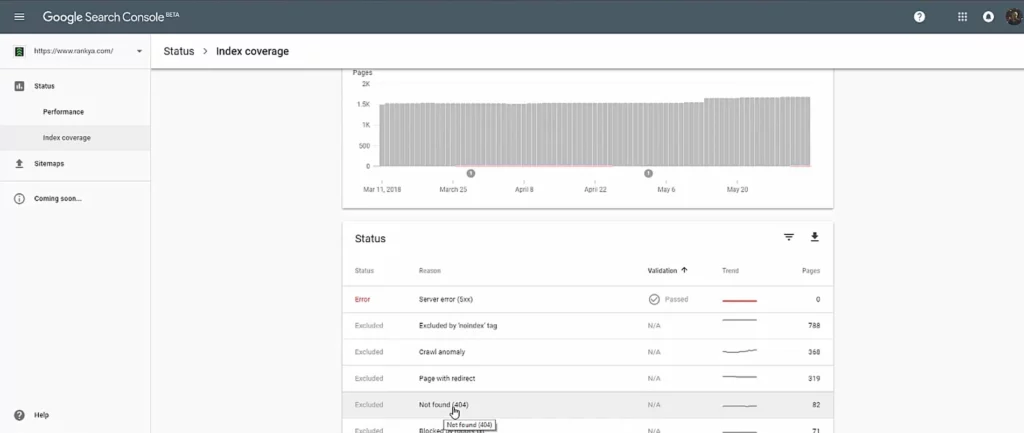
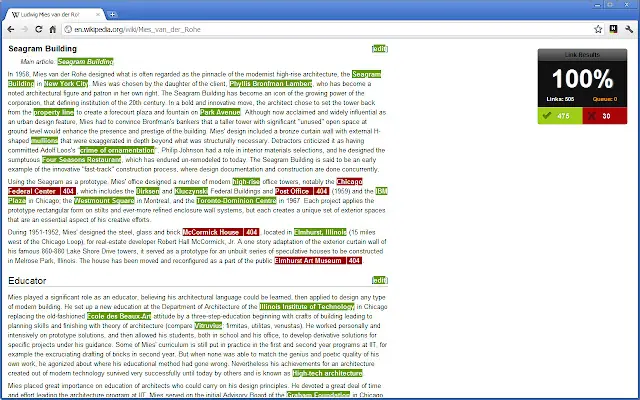


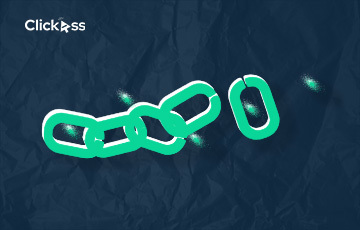

![Backlink Profile: Analysis + [2 Perfect Examples]](https://clickass.io/wp-content/uploads/2024/01/Examples-of-Perfect-Backlink-Profile3-1.webp)
